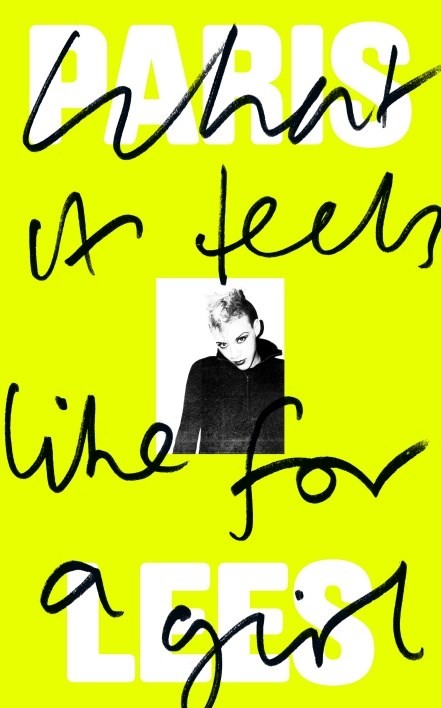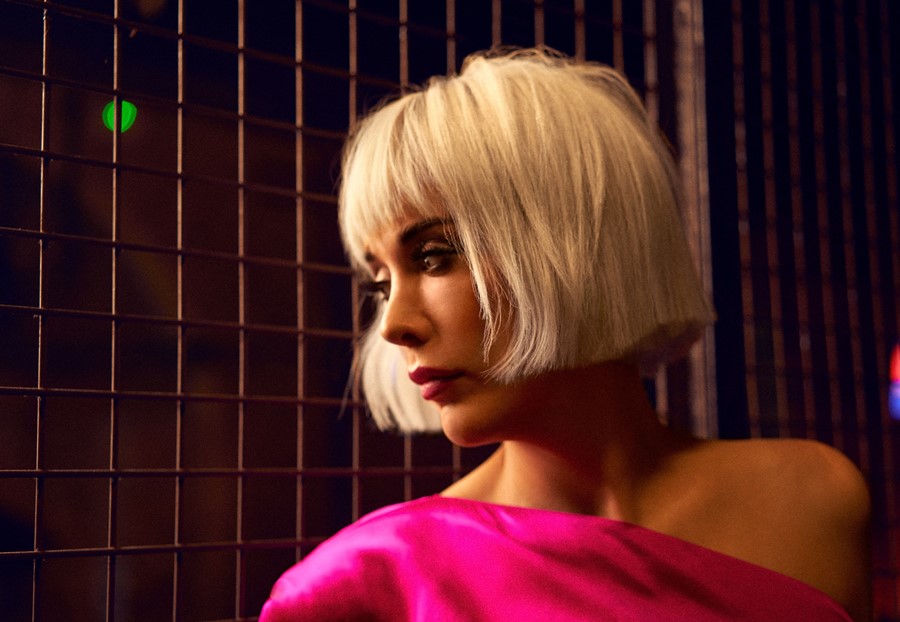Journalist Paris Lees opens up to Nick Levine about her debut book, What It Feels Like for a Girl
If you wanted to call Paris Lees a “trans trailblazer”, you wouldn’t be wrong. After all, she’s already made history by becoming the first trans woman to present for BBC Radio 1 and Channel 4, as well the first to appear on Question Time. But after reading her brilliant debut book, What It Feels Like for a Girl, this glib description feels reductive – to borrow a term from one of her heroes.
Written in Lees’ native Nottingham dialect, this heart-rending memoir is wrapped in a dazzling literary shell. As 13-year-old Byron embraces her femininity, gets sucked into becoming what she calls a “rent boy”, and throws herself into the local club scene, Lees’ storytelling is warm, funny, honest to a fault and completely enthralling. Speaking over the phone, Lees says she had “two rather serious mental health breakdowns” while writing a book that isn’t simply a ‘trans memoir’, but a beautifully human tale of self-determination. Here, she tells us more about it.
Nick Levine: Did revisiting these incredibly traumatic experiences that you went through as a young teenager contribute to the breakdowns?
Paris Lees: Oh, definitely. Doing this work is a bit like renovating a house: you have to make a mess before things get better. And that’s kind of what I’ve been doing. I haven’t been out there in the public eye as much; I’ve been in my own little world, in my head, working all of this out and coming to terms with what happened. I’ve been trying to make sense of it all, which is what we do in therapy, right? You know, therapy is words: it’s telling a story about ourselves that we can live with. And that’s essentially what this book is. So the two things really do go hand in hand. It’s absolutely therapy, but actually, a lot of my journalism has been therapy. It’s a lot of trauma and a lot of dealing with things in public. So writing this book was that process, but with the volume turned up by 200 per cent. I’m not entirely sure I could have put this book out in 2014 when it was commissioned because I had all this work to do.
NL: In a way, the book feels even more pertinent now because it’s set in Hucknall, the sort of overlooked small town that the government and mainstream media has only started to think about again since Brexit and the last general election.
PL: I’m glad you picked up on that because for me, that’s a really big thing that’s happening in this country at the moment. Hucknall is literally one of those towns that was forgotten. People just thought, “We don’t have to give a shit about them, just let them rot away over there.” And this book is about what it’s like to grow up there, because I did.
NL: The abuse that Byron endures after becoming a rent boy who’s taken advantage of by much older men is incredibly shocking. Were you highly conscious of this as you were writing those parts?
PL: Yes. It’s supposed to be shocking; I wrote it to be shocking. And if you’re not shocked reading parts of this, then that’s on you. You know, I’m not the only person this has happened to. We know that predatory men take advantage of vulnerable kids and we know that LGBT kids are highly vulnerable. So let’s have a conversation about this. I want to say, “Well, this happened to me. Why did it happen and what does it say about us? And how do we stop it from happening again?” The idea that it’s happening to kids today really, really upsets me. I was so, so unhappy at the time [it happened to me] and I don’t want anybody else to have to go through that. And if that makes me sound like Princess Diana, well, so what?

NL: There’s also a terrific sense of camaraderie in the book when Byron finds a chosen family – the ‘Fallen Divas Project’ – and starts going clubbing. Do you think if you were growing up today, you might have found that camaraderie on social media instead?
PL: We wore really crazy, out-there stuff. I looked a bit like Yungblud at times. I’ve got photos where I look really cyberpunk with blue lipstick and all the rest of it. If I was 14 or 15 today, I think I would have been really famous on TikTok or something. But I don’t know if that would have been a healthy thing for me. It’s one thing to be attention-seeking in a club or walking down the street, but having access to everything that kids have now, it could have gone either way for me. Because for me, that attention-seeking wasn’t a healthy thing. It came from a deep, deep, deep sense of not feeling good enough and desperately wanting validation. Looking back, I think it’s obvious I was this kid who just wanted someone to tell them I was good enough and that I had some value.
NL: The pop culture references in the book are so evocative and spot-on. I love that Byron uses Joan Collins as a bellwether of sophistication: when she talks about posh people eating olives, her first thought is: “I bet Joan Collins has had one.”
PL: I am a Joan Collins stan to this day. I just find her hilarious. She has this great quote: “The problem with beauty is that it’s like being born rich and getting poorer.” How can you not stan her for that alone? I don’t know how she came into conversation but I remember one time, the girl who was doing my nails had never heard of her. And I swear to God, it took all my strength not to get up and leave that salon.
NL: She’s such an interesting pop culture figure, isn’t she? I don’t share her politics, but there are so many admirable things about the way she has conducted her life and career.
PL: As you can imagine, obviously I don’t quite share her politics either, but as a kid I think I was drawn to her power. I didn’t have any power as a kid and she was someone who projected power in a very public way. I read [Fay Weldon’s novel] The Life and Loves of a She-Devil during this time and it kind of tapped into the same idea: the idea of the 80s ‘power bitch’. I think we’ve moved past that idea now culturally, but when I was growing up it was still alive. And Madonna was definitely part of it too. As somebody who grew up without any power, I was always really drawn to anyone who I perceived as a powerful woman.
What It Feels Like For A Girl by Paris Lees is out now via Penguin Books.
